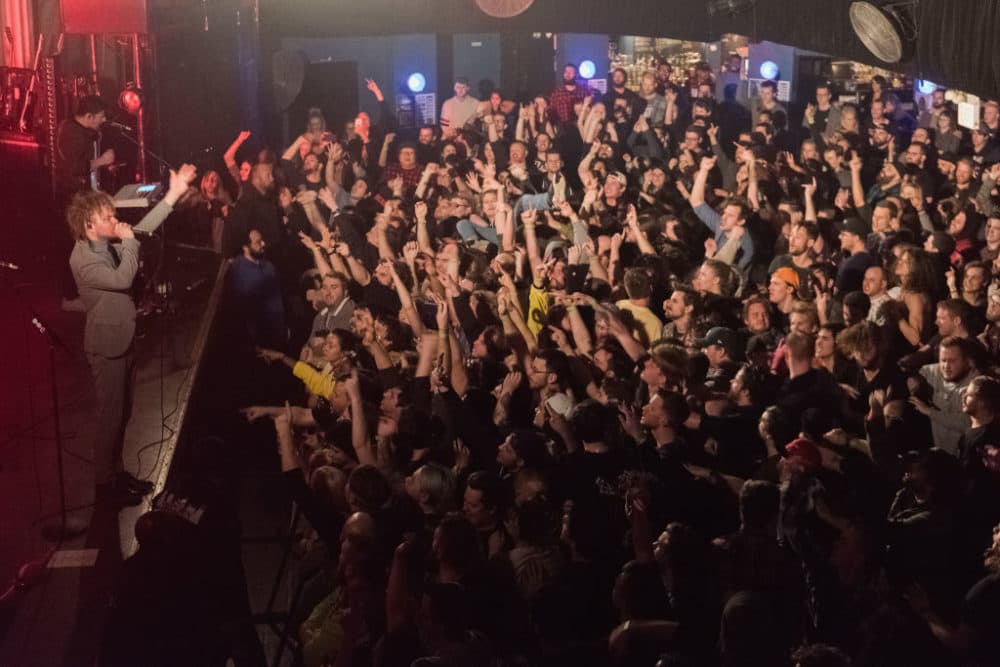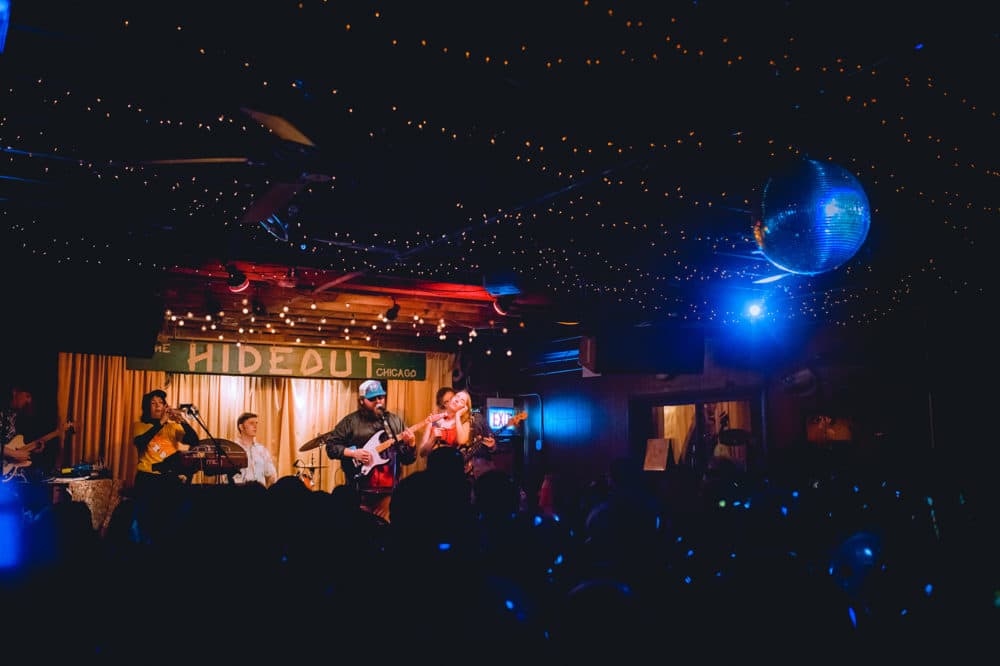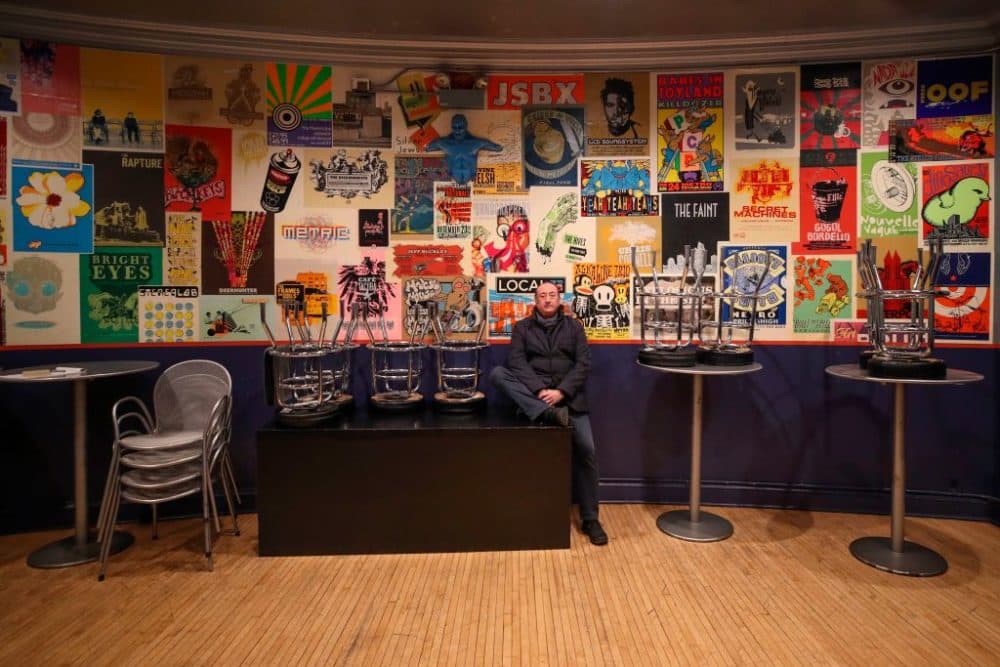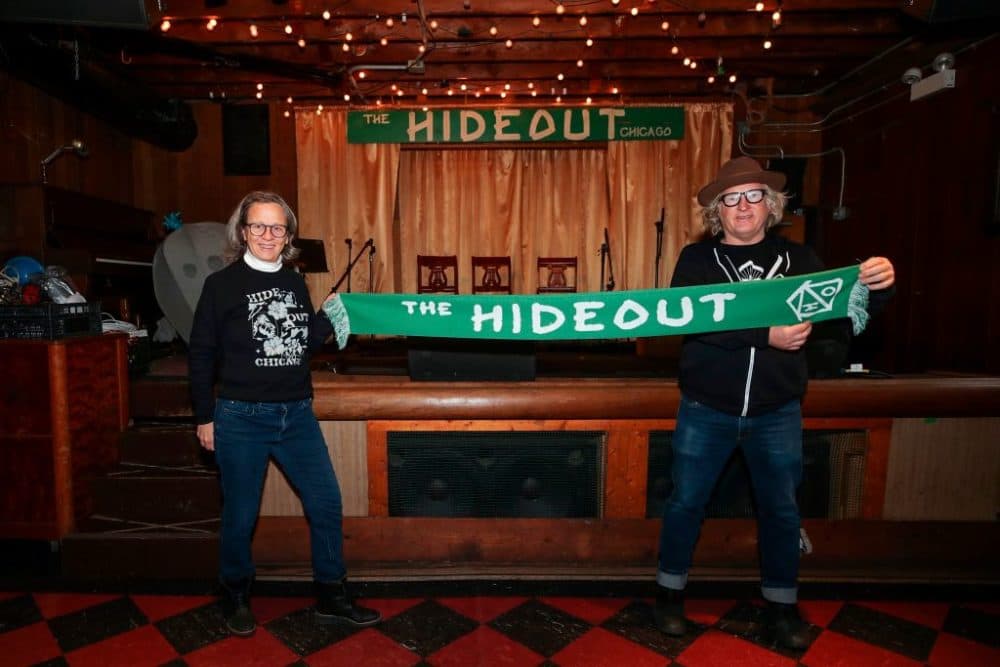Advertisement
Chicago Independent Venue Owners Say They Can Take 'A Deep Breath' With The Save Our Stages Act
Resume
Music lovers remember the rush of seeing their favorite performers live before the pandemic, sweat rolling down their faces as colorful lights cast beams on a roaring crowd.
Since early 2020, venues have had to cancel shows, refund tickets and scramble to stay afloat. But there is a bit of hope bundled into the larger COVID-19 relief bill: The Save Our Stages Act passed by Congress and signed by the president allocates $15 billion to independent venues.
Katie Tuten co-owns the Hideout, a venue in Chicago where garage bands try out their scratchy, raw material for small, intimate crowds. After nine months of struggling and calling elected officials, Tuten says she’s grateful that the relief bill includes venues like hers.
“We can take a deep breath now because we see light at the end of the tunnel,” she says. “There is a glimmer of hope.”

The $15 billion will be distributed through the Small Business Administration, the same government agency that paid out the Paycheck Protection Program funds to keep small businesses open earlier in the pandemic. SBA faced criticism for giving the biggest loans to a tiny fraction of businesses that needed the money.
Alongside the National Independent Venue Association and the Chicago Independent Venue League, Tuten and venue owner Joe Shanahan are working to ensure that small businesses get the money over corporations and proprietors understand the language of the bill.
Funding will go toward businesses that lost 90% of their revenue first, she says, and an additional $2 billion has been set aside for businesses with fewer than 50 full-time employees.
Independent venues and clubs employ more than 71,000 people in the U.S., says Shanahan, owner of the Metro in Chicago. The Metro can hold more than a thousand energized fans and regularly sees some of the biggest names in the world.
Shanahan was one of the earliest supporters of The Smashing Pumpkins, once a little-known alternative-rock band from Chicago. The band went on to perform their farewell show at the Metro in 2000.

With venues shuttered during the pandemic, Shanahan worries about new, upcoming artists. In Chicago, bands start off playing The Hideout and move up to the Metro — but this cycle has halted over the past 10 months.
“To play for a live audience, that is the key to any progression and any real growth as an artist,” he says. “That's what we miss the most, is seeing those artists performing and seeing the smiles on the patrons’ faces.”
Beyond Chicago, venues across the country needed help to keep the nation’s “complicated” music ecosystem alive, Tuten says.
Smaller bands from Chicago will tour the Midwest and then around the country as they start to grow. Larger venues couldn’t survive without smaller venues and vice versa, she says.

Shanahan says he looks forward to seeing fans “come out in droves” on the first weekend the Metro reopens. People are starved for the irreplaceable experience of live music, he says.
“I think that's part of why we're successful in our call to action,” he says. “People know that this economic, cultural engine is something not to be forgotten or be abandoned.”
When venues reopen, Tuten of The Hideout predicts a wave of great music.
“For me, I just want to be on a sweaty dance floor, dancing, dancing, dancing,” she says. “We're all in this together.”
Alexander Tuerk produced and edited this interview for broadcast with Todd Mundt. Allison Hagan adapted it for the web.
This segment aired on January 19, 2021.

